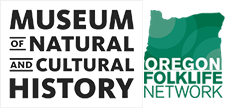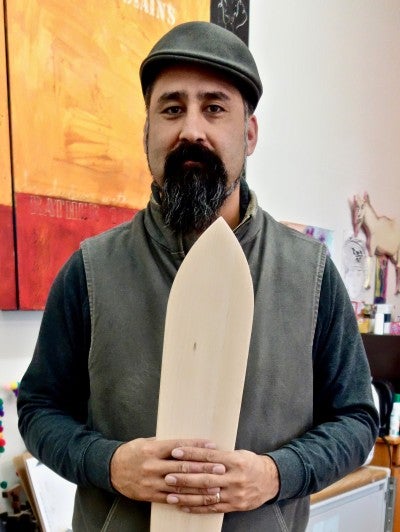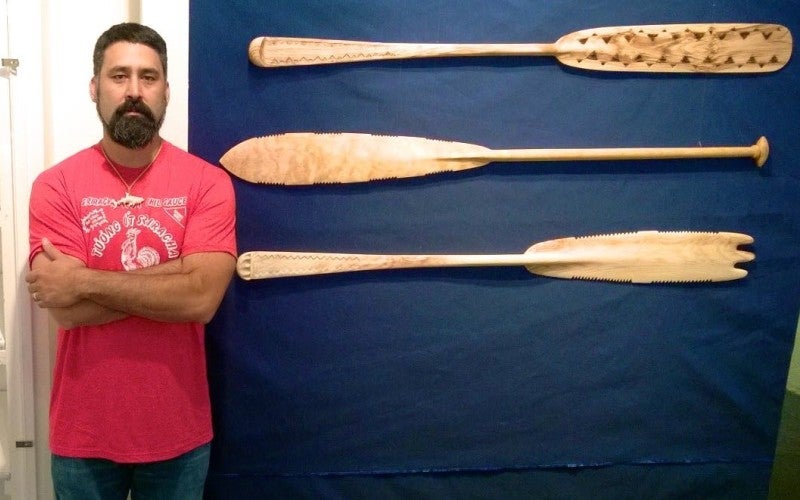Shirod Younker, Upper Coquille and Miluk Coos tribes, (Portland) carves canoe paddles that closely follow his ancestors’ traditions. This work inspired his tribe to construct traditional canoes and participate in the annual Tribal Canoe Journey. Younker manages an artists-in-residence program for Native American teens at the Oregon College of Arts and Crafts.
Bio
Shirod Younker, Upper Coquille and Miluk Coos tribes, carves traditional canoe paddles, teaches paddle carving, and conducts other carving workshops. Younker manages the only pre-college artists-in-residence program for Native American teens in the United States at the Oregon College of Arts and Crafts. Younker was born in North Bend, near the waters of Coos Bay and the Pacific Ocean. His family lived on the South Slough, where they paddled fiberglass canoes in ancestral waters. The family loved canoeing because it facilitated other traditional activities, including berry picking, clamming, crabbing, fishing, and duck hunting. Those experiences were part of a traditional tribal lifestyle, but didn’t always include the traditional tools and objects that affirmed their tribal heritage and land rights. As a student at Oregon State, Younker’s interests in art and culture led him to a BFA in Applied Visual Arts. In the early 1990s, Younker and a small group of tribal members actively undertook research into the anthropological record and talked to other tribal members about their cultural traditions. With regard to canoes, they learned that each specific shape of canoe paddle identifies the ethnic group to which it belongs. Identifying basketry, designs, and carving aesthetics assisted Southwest Oregon tribes to lay the foundation for restoring their cultural arts. During this period, Younker started carving canoe paddles that closely followed the traditional forms his ancestors used. His practice ultimately led his tribe to construct traditional canoes and to participate in the annual Tribal Canoe Journey. The revival of the Pacific Northwest canoe culture has encouraged many tribes to renew traditional rights and stewardship practices.





